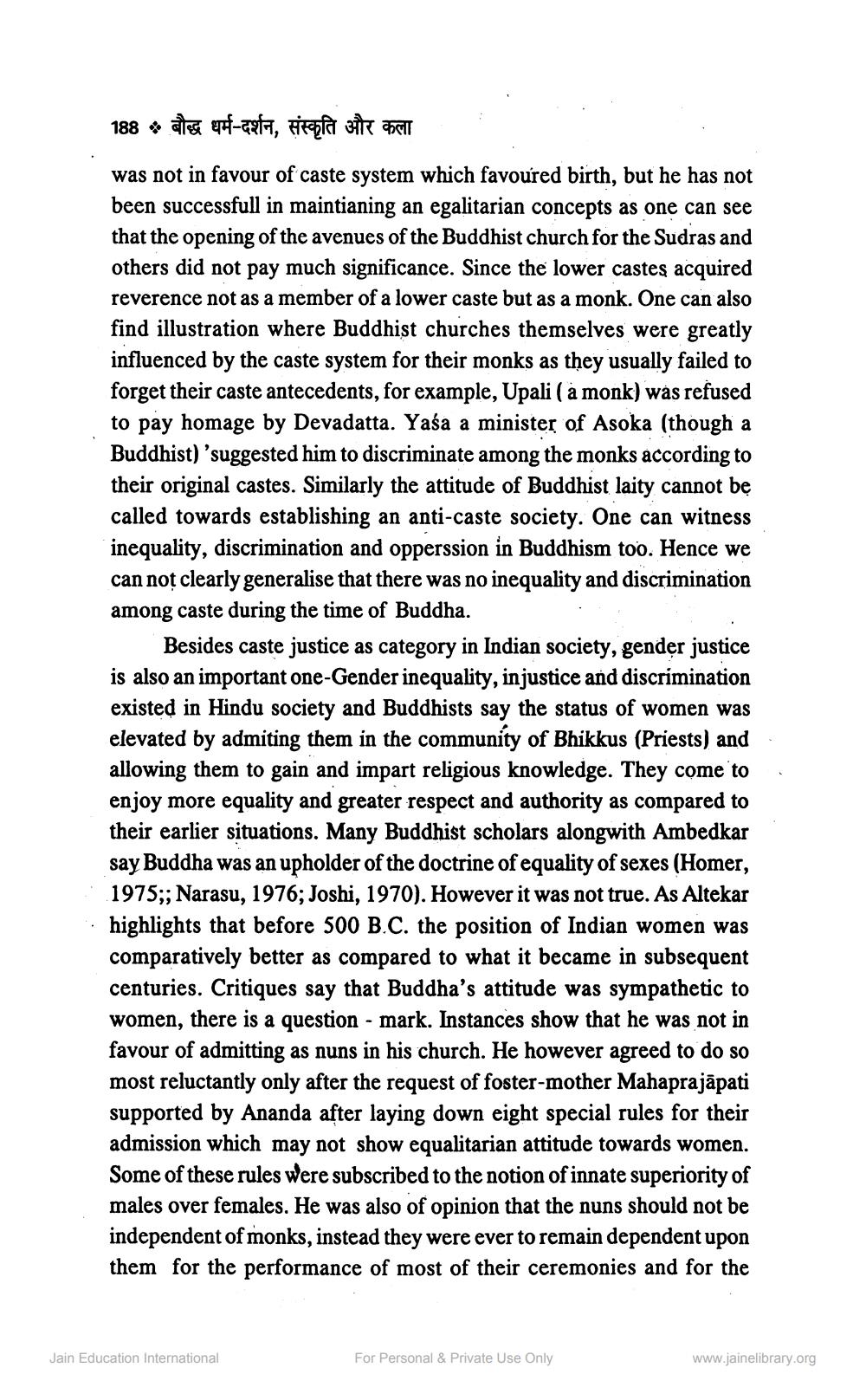________________
188
alles erf-asta, hala ante hell
was not in favour of caste system which favoured birth, but he has not been successfull in maintianing an egalitarian concepts as one can see that the opening of the avenues of the Buddhist church for the Sudras and others did not pay much significance. Since the lower castes acquired reverence not as a member of a lower caste but as a monk. One can also find illustration where Buddhist churches themselves were greatly influenced by the caste system for their monks as they usually failed to forget their caste antecedents, for example, Upali ( à monk) was refused to pay homage by Devadatta. Yaśa a minister of Asoka (though a Buddhist) 'suggested him to discriminate among the monks according to their original castes. Similarly the attitude of Buddhist laity cannot be called towards establishing an anti-caste society. One can witness inequality, discrimination and opperssion in Buddhism too. Hence we can not clearly generalise that there was no inequality and discrimination among caste during the time of Buddha.
Besides caste justice as category in Indian society, gender justice is also an important one-Gender inequality, injustice and discrimination existed in Hindu society and Buddhists say the status of women was elevated by admiting them in the community of Bhikkus (Priests) and allowing them to gain and impart religious knowledge. They come to enjoy more equality and greater respect and authority as compared to their earlier situations. Many Buddhist scholars alongwith Ambedkar say Buddha was an upholder of the doctrine of equality of sexes (Homer, 1975;; Narasu, 1976; Joshi, 1970). However it was not true. As Altekar highlights that before 500 B.C. the position of Indian women was comparatively better as compared to what it became in subsequent centuries. Critiques say that Buddha's attitude was sympathetic to women, there is a question - mark. Instances show that he was not in favour of admitting as nuns in his church. He however agreed to do so most reluctantly only after the request of foster-mother Mahaprajāpati supported by Ananda after laying down eight special rules for their admission which may not show equalitarian attitude towards women. Some of these rules were subscribed to the notion of innate superiority of males over females. He was also of opinion that the nuns should not be independent of monks, instead they were ever to remain dependent upon them for the performance of most of their ceremonies and for the
.
Jain Education International
For Personal & Private Use Only
www.jainelibrary.org




